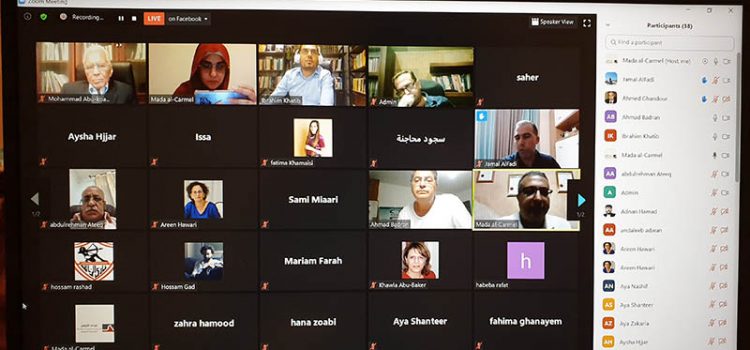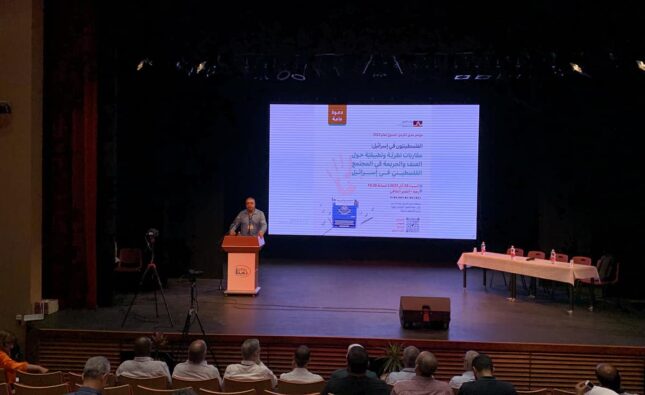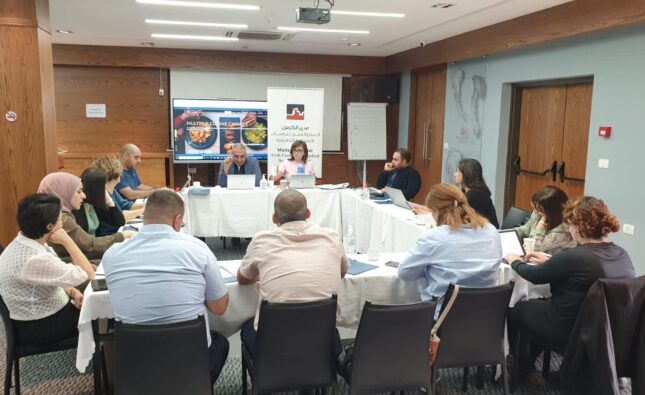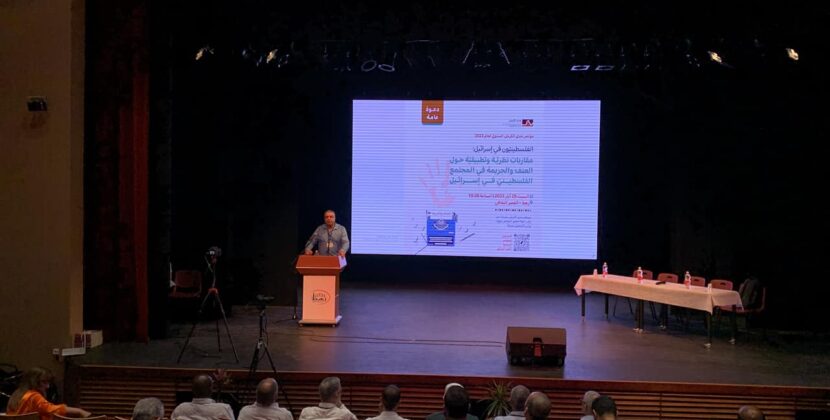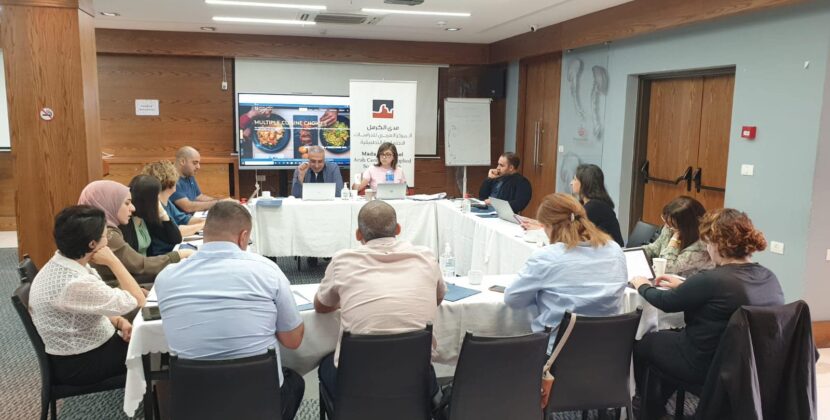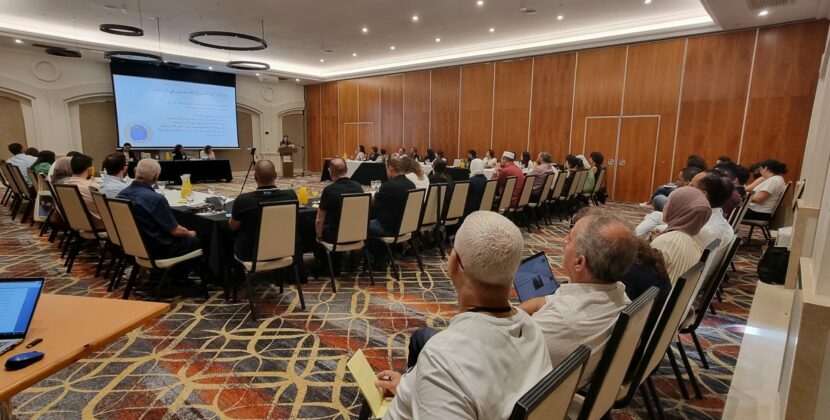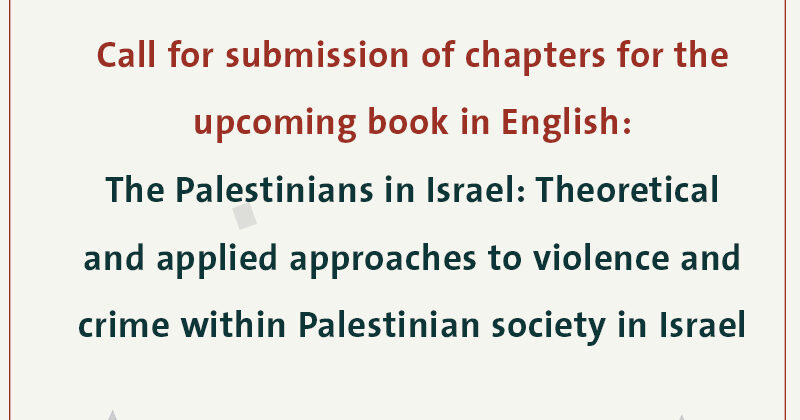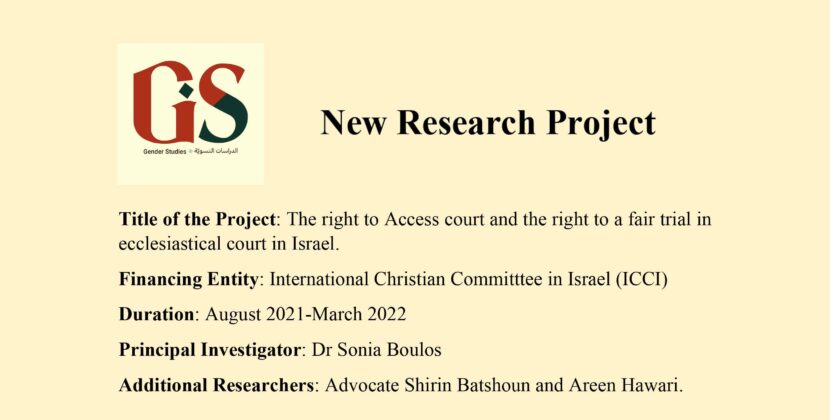Following the announcement of the Israeli-Emirati peace deal, Mada al-Carmel convened a seminar on Zoom entitled “Palestinians in Israel and the Israeli-Emirati Peace Deal: Discourse and Implications”. The seminar was chaired by Dr. Mohanad Mustafa, General Director of Mada al Carmel, who pointed out in his opening address that most of the seminars and articles put out since the announcement of the peace deal have only focused on the impact of the deal on the Palestinian cause and on the general regional atmosphere. He said that there had been a lack of serious discussion on the impact of the deal on Palestinians in Israel. Dr Mustafa added that this normalisation deal denies the complexities of the Palestinian narrative, and endorses Zionist perspectives on the Palestinians. He concluded that the repercussions of the deal are compounded by the fact that it has come during the era of the most right-wing government in the history of Israel, and in the midst of an increase in the hardships faced by the Palestinian community inside Israel.
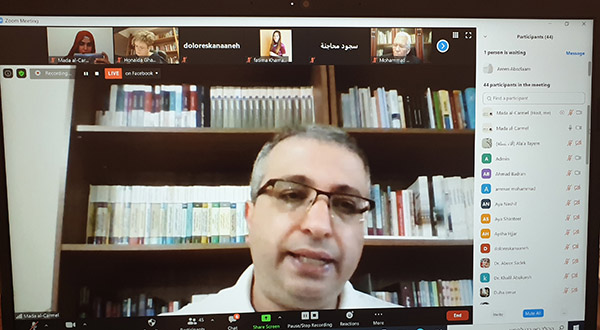
After Dr Mustafa’s introduction, the first speaker of the seminar was Dr Fadi Nuhas, a researcher in Israeli national security affairs. He investigated the question of how Egyptian civil society responded to normalisation with Israel in 1978. How would confronting this new instance of normalisation be different? Nuhas outlined the reasons which heighten the seriousness of this normalisation deal, for example, the absence of proper civil institutions in the Emirates will make it harder for Emiratis to oppose normalisation. This makes for an essential difference in the Egyptian and Emirati cases. Egyptians responded to normalisation after the Camp David Accords, and the Palestinian issue was a point of contention between the Egyptian regime and population. This meant that the Egyptian regime had tread carefully in its dealings with Israel. In other words, the peace deal with Egypt, which came after several wars, was confined to a state level and did not reflect popular feeling. Israeli normalisation with the Emirates similarly takes place at the level of state, security and economy. Nuhas summed up by saying that it is not possible to rely on civil society today, but that there are still some powerful groups in the Arab world who continue to support the Palestinian cause.
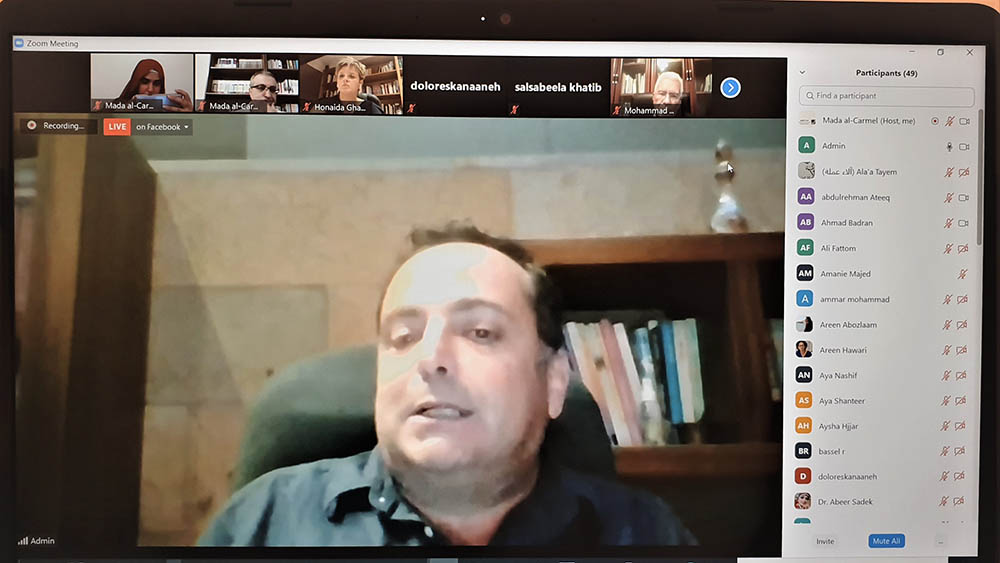
Next to speak was Dr Honaida Ghanem, director of the Palestinian Center for Israel Studies (MADAR). She addressed the following question: “What repercussions does the peace deal have for Palestinians in Israel, as part of a wider question of what the deal means for the Palestinian cause?” Dr Ghanem addressed such aspects as politics, identity, the nature of Palestinian subjugation in Israel, and others. Ghanem said that we are witnessing the gradual transformation of the stance of the Arab world, which is moving from viewing Israel as its opponent, to viewing it as being able to play a central role in regional alliances. This agreement, which brings together capitalist trade interests, will lead to the marginalisation of the Palestinian cause and will further establish Israel as an empire in the region. All this comes at a time of great weakness in formal Palestinian politics, which is in a state reminiscent of the situation which existed on the eve of the Nakba. There is a lack of vision, a lack of a clear stance, and a lack of audacity from the Palestinians inside Israel. There is the additional concern that the financial support which the Emirates have promised to the Palestinians will be leveraged influence the Palestinian national agenda, and that the Palestinians in Israel will be instrumentalise to weaken the Palestinian national cause.
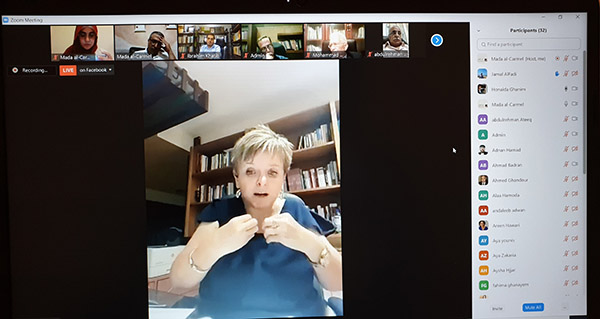
The final speaker was Dr Ibrahim Khateeb, a political researcher and staff member at Harvard University’s Center for Middle East Studies. He addressed the question “How can we characterise reactions to the Israel-Emirati peace deal at the levels of Palestinian popular and political discourse in Israel?” Khateeb notes that the degree of rejection of the deal by the Palestinians and by Palestinian political parties varies according to regional position and differing political agendas. Nevertheless, the prevalent stance amongst the Palestinian population in Israel is one of resistance to normalisation. Khateeb indicated that popular reactions to the deal were less severe than expected. It’s no different with the political parties who have not adopted clear positions on the agreement. It’s clear that there is plenty of opposition from the Palestinian community in Israel to normalisation, but the limited nature of that opposition tells us that the Palestinians in Israel are in something of a transitionary phase. They may well end up as mere supporters of the Palestinian cause, rather than being a part of it.
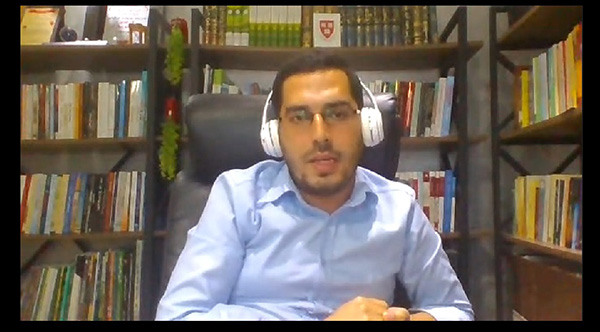
The seminar ended with a panel discussion. Unfortunately, it did not go as smoothly as planned- several anonymous participants on the Zoom call tried to disrupt and hijack the discussion, in an attempt to prevent discussion of the peace deal and its implications. Their efforts had quite the opposite effect, as the speakers became even more determined to be heard in the face of this unwelcome intrusion. Their responses to the disruption were perhaps best expressed by Dr Ghanem, who declared: “But I’m going to talk!”
The seminar was a great success, despite these efforts to disrupt it. There was a good level of public engagement, with over 50 participants on the call. The chat section hosted discussions between participants throughout the various speakers’ presentations. A stream of the call hosted on Facebook garnered over 1600 views in 24 hours, indicating strong public interest in this topic. It also demonstrates the important contribution that groups like Mada al-Carmel make, in terms of facilitating engagement with and access to well respected analysts and researchers on issues which are affecting the daily lives of Palestinians in all contexts, including in Israel.





